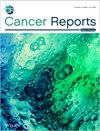Efficacy and Safety of CART Cell Therapy in Aggressive B-Cell Lymphomas Involving the Gastrointestinal Tract
Abstract
Objective
Currently, chimeric antigen receptor T-cell (CART) therapy represents a highly effective approach for relapsed/refractory B-cell lymphomas. However, it also carries treatment-related risks. Limited data are available on the risks associated with CART therapy in patients with gastrointestinal involvement in B-cell lymphomas. Therefore, we conducted a retrospective cohort study to address this gap in knowledge.
Methods
During the period from May 2019 to August 2022, a total of 26 patients recurrent/refractory with recurrent/refractory B-cell lymphoma involving the gastrointestinal tract enrolled. Pathology confirmed CD19 antigen expression in tumor tissues. The disease status of patients who failed multiple lines of therapy was progressive disease (PD). Before CART cell infusion, patients received an FC regimen (fludarabine and cyclophosphamide) lymphodepletion. Quantitative PCR and flow cytometry were adopted for monitoring CART cell kinetics and function, with a focus on gastrointestinal AEs during treatment. The overall response rate (ORR) of the 26 patients was 61.5% (16/26), while the complete response rate (CR) was 23.1% (6/26). Their median follow-up time was 22.49 months, while the medians of overall survival (OS) and progression-free survival (PFS) were 10.88 and 5.47 months, respectively. The 1-year OS and PFS rates were 45% and 42.3%, respectively. The prevalence of gastrointestinal complications was 21/26 (80.7%), including gastrointestinal hemorrhage in 11/26 (42.3%), emesis and diarrhea in 9/26 (34.6%), as well as intestinal obstruction in 2/26 (7.7%). A total of three patients (3/26, 11.5%) died of gastrointestinal hemorrhage. The gastrointestinal hemorrhage group exhibited markedly lower ORR and inferior OS compared to the non-hemorrhage group.
Conclusion
Generally, the CART cell therapy is valid in relapsed/refractory B-cell lymphoma with gastrointestinal involvement, but gastrointestinal bleeding is a unique risk factor that requires special attention, particularly in patients with high gastrointestinal tumor burden, as it is associated with poor efficacy and survival.


 求助内容:
求助内容: 应助结果提醒方式:
应助结果提醒方式:


